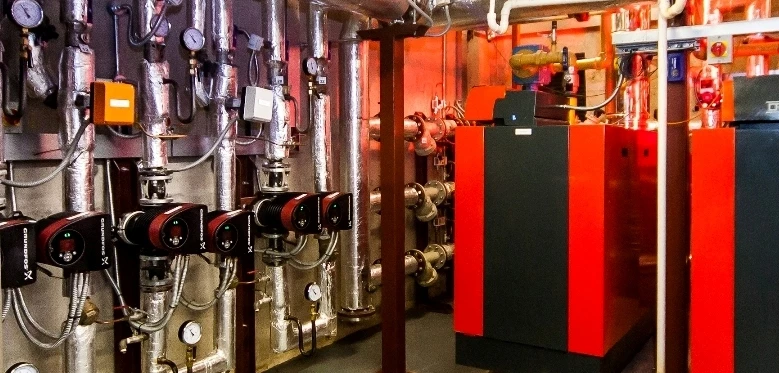
Member Article
Experts explore solutions to improve effectiveness of heat networks
The push to create more UK heat networks to decarbonise heat supplies is prompting renewed calls for regulation of the sector and a need to improve the effectiveness of district and community heating schemes.
A recent seminar, hosted by The Housing Forum and community and district heating specialist Switch2 Energy, debated the regulatory and performance issues facing the heat network sector as it looks towards dramatic expansion.
Michael Cleaver, Director of the Housing Forum, said that heat networks are one of the most effective methods for reducing carbon emissions and are an essential part of the UK’s future clean energy infrastructure. However, he recognised that the sector must first overcome a number of challenges relating to design and build, monopoly of supply, low transparency, and performance and maintenance.
Recommendations by the Competition and Markets Authority (CMA) to regulate the sector could help address some of these challenges. A move towards mandatory regulation was broadly welcomed by all of the speakers, who praised the voluntary codes of practice by ADE/CIBSE, and The Heat Trust, which have done so much already to raise performance and customer service standards.
Together with the existing Heat Network Metering and Billing Regulations, it was felt that these robust standards can be built on and enforced to ensure consistent best practice across the entire industry.
Chris Paul, Partner with Trowers and Hamlin international law firm, outlined the latest regulatory and compliance issues affecting heat networks. This included the recent CMA recommdation and the likely impact of regulation on tariff structures, supply terms and investor confidence. He also discussed the new requirements for improved information to purchasers and tenants, including pre-contractual information, EPCs, Heat Supply Agreements and leasehold agreements.
Making better use of data to improve the effectiveness of heat networks and deliver affordable warmth was the topic of a presentation by Ian Allan, Head of Research and Development for Switch2 Energy. He explained how to combine data insights from smart metering and building energy management systems to help inform performance improvement strategies, including the reduction of temperature flow rates. This can cut heat losses, reduce overheating and reduce pumping costs, which can have a significant impact on cost, carbon performance and comfort levels.
Jim Martin, of Martin Arnold Associates chartered surveyors, discussed the practical and technical challenges of heat network development and construction. He cited the common CHP problem of overheating in communal areas and the critical importance of adequate ventilation, including the basic solution of windows that can open in these shared spaces.
He also stressed the need to ensure high levels of insulation for flow and return pipes, and the importance of heat exchanger efficiency, which can ensure lower return temperatures.
The industry speakers drew on real-life examples from CHP and communal heating schemes to show delegates how to take a more intelligent, informed and compliant approach to heat network design, development, implementation and operation.
This was posted in Bdaily's Members' News section by Switch2 Energy Ltd .
Enjoy the read? Get Bdaily delivered.
Sign up to receive our popular morning National email for free.




 test article 123456789
test article 123456789
 hmcmh89cg45mh98-cg45hm89-
hmcmh89cg45mh98-cg45hm89-
 test456456456456456456
test456456456456456456
 test123123123123123123
test123123123123123123
 test xxxdiosphfjpodskhfiuodsh
test xxxdiosphfjpodskhfiuodsh
 Savour the flavour: North Tyneside Restaurant Week returns for 2024
Savour the flavour: North Tyneside Restaurant Week returns for 2024
 Six steps to finding the right buyer for your business
Six steps to finding the right buyer for your business
 Stephen signs off on a special night
Stephen signs off on a special night
 Life’s a Peachaus: Gillian Ridley Whittle
Life’s a Peachaus: Gillian Ridley Whittle
 Making a splash: Phil Groom
Making a splash: Phil Groom
 Making workplace wellbeing a priority
Making workplace wellbeing a priority
 A record of delivery, a promise of more: Ben Houchen
A record of delivery, a promise of more: Ben Houchen